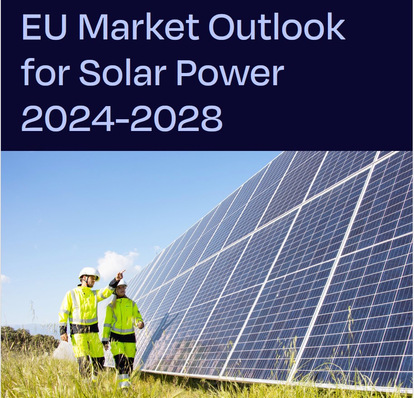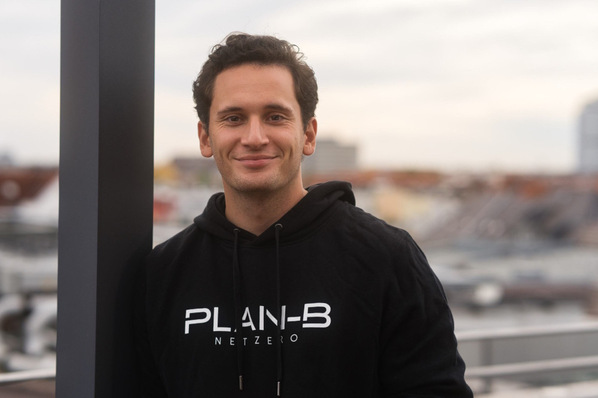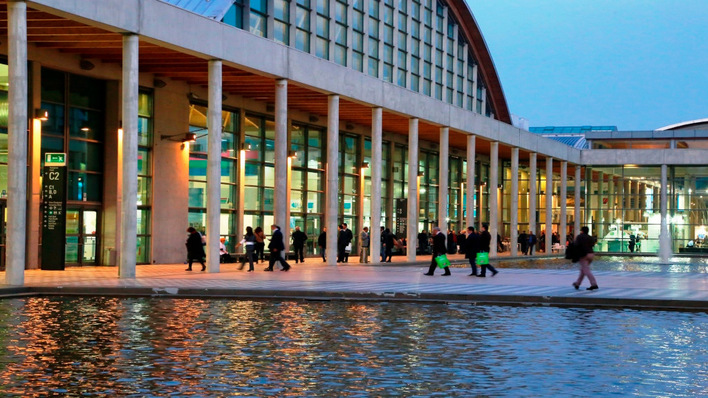With more than one gigawatt of module production per year, the most important manufacturer of solar modules in Europe is Meyer Burger. Recently, the CEO has announced that he will close the factory in Saxony in order to manufacture modules in the States from now on. The Swiss company wants to decide by mid-February 2024 whether they will continue to invest in the Freiberg site in eastern Germany.
The clarity with which CEO Gunter Erfurt addressed the press is new. It shows a bitter reality. The price dumping by Chinese suppliers is playing against the European module manufacturers.
The market is still very young, yet to mature
"One half year, solar companies see their turnover triple, the next six months it’s half," Gerard Scheper, CEO of European Solar, says. "Maybe our market isn't as mature as we thought.“
That means: The Chinese have ramped up their factories to such an extent that they are now stuck with warehouses full of goods. It is a problem that arises from the behaviour of the Chinese and their understanding of world trade. Comrades, Beijing makes everyone happy! Mao grins and salutes us from his tomb.
The modernization of the European energy industry
As a reminder: The energy transition is about more than putting millions of solar modules onto European roofs and fields. At the same time, it means a modernization boost for European industry and trades. The decentralized energy transition offers the opportunity to support structural change in the economy through new factories for solar cells, glass and solar modules – throughout the EU.
And: A strong solar industry fundamentally corrects the imbalance that has burdened the European energy industry since the end of World War II. The EU is poor in raw materials. Most countries in Europe have to buy their fuel from abroad, from dictators and religious fanatics: gas and uranium from Russia, oil from Saudi Arabia and Iran. And now solar modules from Beijing, from the red emperors? Are we mad? Have we learned nothing?!
Difficult inheritance
Instead of accelerating the energy transition, instead of strengthening the energy base of European industry, we were forced into a dependence on apparently cheap natural gas and uranium from Russia.
Do you want to know more about solar industry in the EU? Subscribe to our investor‘s newsletter!
I argue that this is one of the main reasons for the war in Ukraine. That we are still dependent on the Russian oligarchs today. That there is an energy crisis. And it is homemade.
The Chinese were certainly smart
In the first crisis affecting European manufacturers, the Chinese reacted quite cleverly: Beijing spent an estimated 20 billion US dollars to save the solar factories in China. Some large manufacturers like Suntech came under pressure, and some narrowly avoided bankruptcy. Government loans are the foundation on which the current market dominance of Chinese manufacturers rests.
The solar industry could not be destroyed
Nevertheless, the European solar industry couldn’t be destroyed. While Solarworld failed, Meyer Burger recognised the opportunities. Solarwatt has expanded its solar module factory in Dresden and the network of sales partners in the installing trade.
Heckert Solar grew in Chemnitz and a new factory was built in Langenweißbach. Aleo Solar in Prenzlau and Sonnenstromfabrik in Wismar have seen good developments. The list goes on, including Kioto Solar in Austria or 3S Swiss Solar in Switzerland. Small manufacturers of premium solar modules have also emerged elsewhere in Europe: in the Low Countries, in Italy, in Poland, in the Baltics, in Slovakia.
A chance for local providers
The increasing demand for high-quality solar modules suggested that local manufacturers have an opportunity. This is very easy to understand economically. The proportion of labour costs in the largely automated factories is less than ten per cent. The fact that labour is cheaper in China than in the EU no longer matters.
What does matter is energy costs, which are heavily subsidised by the Chinese state. The power mix in China is dominated by coal and nuclear. This energy now comes to us in the form of solar modules - on container ships spewing thick clouds of smoke.
Restructuring the industry is part of the energy transition
The energy transition will not succeed if it does not involve restructuring the energy industry. Solar modules and wind turbines from European production strengthen the EU economy. For the first time, Europe has the chance to free itself from expensive and risky energy imports.
See also: SolarPower Europe: EU solar market reaches record heights
Building a strong solar industry must be a goal of equal importance - alongside the solarization of buildings and spaces. Both go hand in hand and have significant consequences.
It's about prosperity - not subsidies
Supporting the solar industry with effective policies has nothing to do with subsidies. It has something to do with why we even afford the circus in Brussels and the member states, why we pay an army of economists and why economic policy is the core of the political theatre in Brussels.
It's about our prosperity, which is based on industry, on high productivity, on innovations and jobs that cannot be done better in China. The Americans have understood that: they closed the doors. Anyone who doesn't manufacture in the United States stays outside. Uncle Sam has spoken!
Empty words from Brussels
So far only empty words have come from Brussels. The officials are playing Mikado, allowing the Chinese to mercilessly abuse their market power. Therefore I understand Gunter Erfurt's call as a cry for help: Stop talking! Do something!
There are enough suggestions on the table. We don't need billions in subsidies like the Chinese did twelve years ago. We need intelligent market incentives for cells and solar modules made in Europe.
Bonuses are a very smart way
Bonuses for local products and for resilience are a good way, a very smart way to direct the market. With little financial investment we get the energy transition plus the factories, plus the jobs and independence. We secure our energy supply against overwhelming imports, following the example of the US.
Anyone who acts against the European module manufacturers is acting against fair trade and competition according to rules that apply equally to all market players. Anyone who acts against a strong solar industry in the EU does not change the geopolitical rules of the game. Then the age of wars over energy sources and raw materials will never end.
Time is running out
What is the EU good for if not as a guardian of fair rules? The message from Meyer Burger is clear: Time is running out, the industry is up to its neck. If you really want the energy transition, you will at last have to act. We need strong manufacturers in the EU.
Of course, we also need competition from the Far East. If it plays fair. Do European providers have free access to China? Not yet.
Very soon, American producers will show up to offer their goods to the lucrative markets of Europe. More manufacturers and more real competition means a better energy transition, a better European economy and more jobs here.
This should be very easy to understand: Enough talking, let's take action! (mfo)
This editorial was written by Heiko Schwarzburger. The views expressed are his and may not reflect those of the editorial staff of pv Europe.








